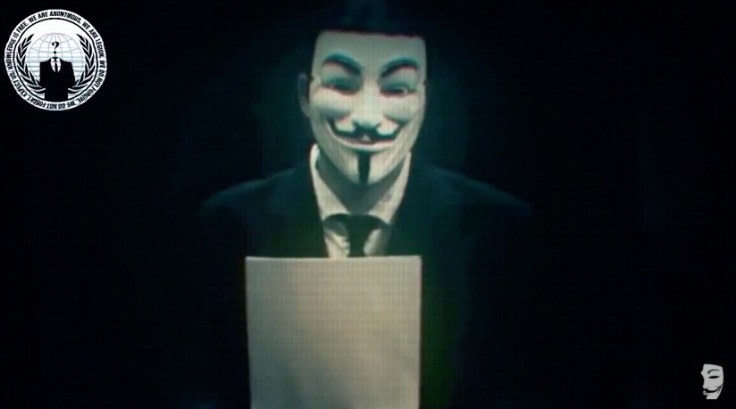Anonymous threats of 'electronic Holocaust' are nothing more than incendiary rhetoric

Hearing Anonymous make bombast threats against enemies much bigger and more powerful than themselves is nothing new, as the amorphous online hacktivist group likes nothing more that to play up to the David and Goliath mythology it has created around itself since it emerged from the racist, sexist and homophobic chatrooms of 4chan.
One of the group's most consistent opponents (at least in the minds of the activists themselves) has been Israel, and the #OpIsrael campaign has been a fixture of the group's activities for the last three years.
Therefore is was unsurprising to see some members of the group publishing a video in which they promise to "erase Israel from cyberspace" on 7 April to coincide with Holocaust Remembrance Day.
These claims have been heard for the last three years but the group took things a little further this year, promising to carry out an "electronic Holocaust" against the country.
Clearly worded to incite anger amongst Israelis, it was also included by Anonymous as a way of getting attention from the media which may otherwise have been jaded by the groups continued failure to follow through on its threats to "wipe Israel from the internet".
And it worked. Dozens of media outlets, including mainstream publications such as the Daily Mail, Independent, Newsweek, Haaretz and indeed this website, picked up the story and ran with it without really questioning the validity of the claim.
Cyber Iron Dome
As we have seen in the last few years, Anonymous's attacks have barely left a scratch on the surface of Israel's cyber-Iron Dome.
Israel is one of the most sophisticated countries in the world when it comes to cyber-security, having created some of the most advanced systems to deal with threats of much more complexity than Anonymous can typically mount.
It worked with the United States to create the highly-sophisticated Stuxnet malware and is constantly fending off threats from nation state attackers much more skilled than Anonymous.
Anonymous doesn't have the skill
Following 2014's Anonymous OpIsrael attack - when the group claimed to have inflicted $3bn (£1.77bn) worth of damage - Israel's National Cyber Bureau gave this withering assessment of the hacktivist threat:
"Anonymous doesn't have the skills to damage the country's vital infrastructure. And if that was its intention, then it wouldn't have announced the time of the attack. It wants to create noise in the media about issues that are close to its heart."
Idan Aharoni, head of cyber intelligence at RSA's Anti-Fraud Command Centre in Tel Aviv, was equally damning: "OpIsrael didn't seem to have a single noteworthy technical achievement."
Anonymous clearly understands the power of the media in spreading its message as wide as possible and uses the type of incendiary rhetoric seen in its latest video.
The problem is that rather than sounding like David going up against Goliath, the group's increasingly bombastic claims ring ever more hollow and it will soon be seen more like the boy who cried wolf.
© Copyright IBTimes 2025. All rights reserved.






















